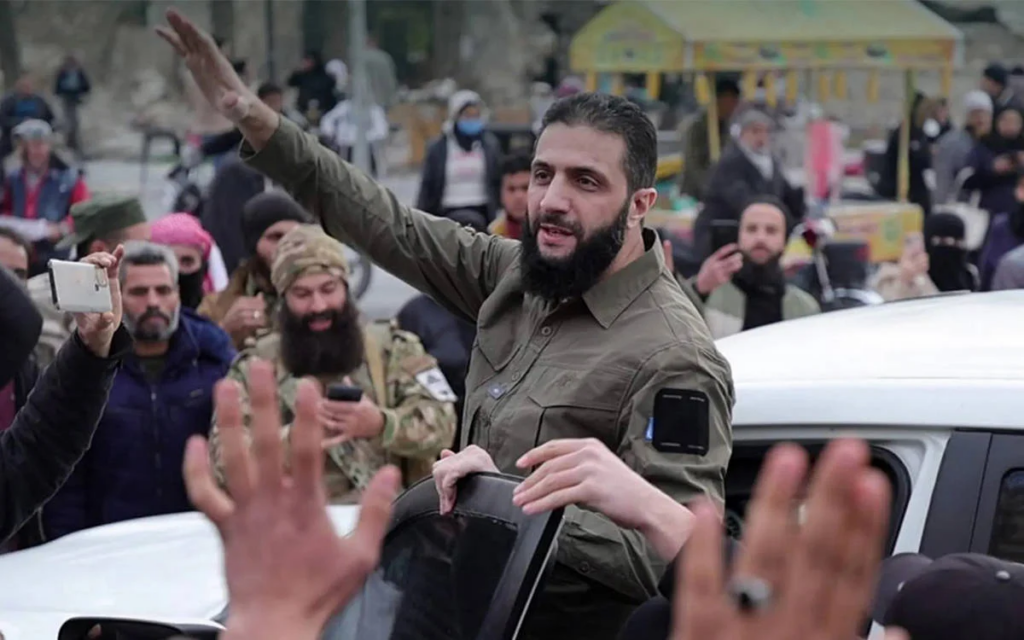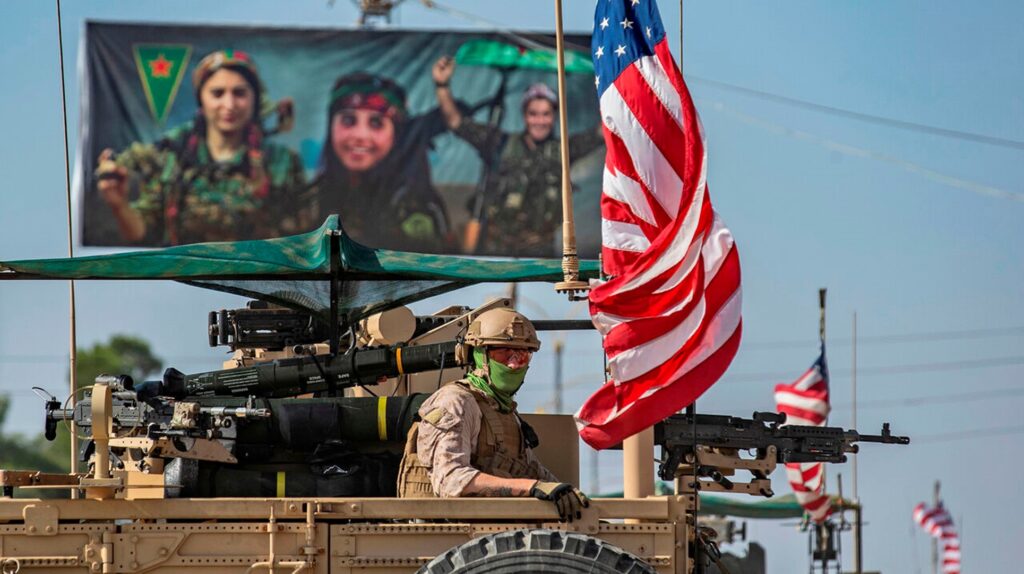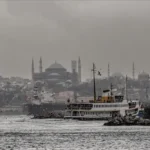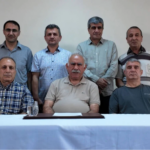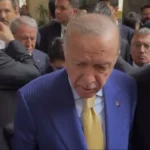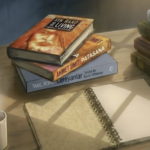Abdullah Kıran
The Turkish original of this article was published as Bir dönem, bir dâvâ! on 8th November 2015. The author is the head of the Department of Political Science and International Relations at the University of Muş.
The 1990s were traumatic for any Kurd who happened to live through that era. A quick way to define that period is to say that all law was comprehensively shelved and the state became “the army,” with soldiers running everything. Then there was also this organization called JİTEM (Jandarma İstihbarat ve Terörle Mücadele = the Intelligence and Anti-Terror Unit of the Gendarmerie). Government authorities would frequently assert that no such thing existed. But all Kurds knew it only too well, and realized that their fate depended on the grace of the staff belonging to it.
The JİTEM outpost at Habur
I first encountered this organization on my way to Iraqi Kurdestan in 1999. There was a little shed on Habur Bridge that you had to go through after passing all other security checkpoints and passport controls, just before you crossed over to the other side. All those heading for Iraqi Kurdestan would be thoroughly interrogated here; those that were identified as “suspect” would be retained, and the rest sent on their way after a complete dressing-down. This JİTEM hut or shed was the last point for the exit from Turkey and the first point you encountered on the way back from Iraqi Kurdestan. In short, those were the ones that you last met on the way out, and the first ones that you met on the way back. Those that were able to make their way through after having been subjected to nothing more than insults, obscenities and other humiliations were considered lucky. For there were also those that didn’t — that were detained and then disappeared from sight, their cadavers re-surfacing in the acid wells at Cizre and Silopi.
I’ll never forget the time when I returned with a few books that I had bought at Duhok. We were once more stopped at that first hut. Inside there were also those who had previously joined the PKK but then had “confessed” [turned informer]. They were probably there primarily to identify those being sent over by the PKK, but they also included Iraqi Kurds who could fluently read Kurdish texts written with the Arabic alphabet. It turned out that one of the books I had bought contained a map of Kurdestan. Furthermore, this time it happened to be a woman who was checking all books in the JİTEM outpost. Since she spoke the Sorani dialect of Kurdish so fluently, I had thought that she might be an Iraqi Kurd. Virtually as soon as she picked up that book, she immediately located the page with that map, and promptly turned me over to the JİTEM staff. I was subjected to half an hour’s cross-examination, after which I was released to the accompaniment of numberless obscenities and humiliations. Of course, it was atime when things had already improved. It could not possibly be compared with the early 1990s. While I was sweating it out inside, my traveling companion, who happened to be a cleric, had been constantly praying for me outside. Like me, he had feared that I might be taken from that shed to an unknown destination. As soon as I came out, he provided me with some advice: “Look here! If ever you have to through this border gate yet again, if you must buy books do please also buy a few porn magazines too. You see what can happen?”
The AKP government did away with these demons from hell
In a previous article, I described the Habur border gate as the “Sirat Bridge” of Islamic belief to the other world. I went through it yet again after the AK Party came to power. Those hell’s angels were no longer there. And subsequently, the procedures at the bridge attained the level of what things should be like in a state of law. Back in those hard times, when you crossed over to arrive at your first stop in Iraqi Kurdestan (which was no further away than the other end of the bridge), the first thing that the peshmerges did was to offer you tea and a drink of water. That was an unforgettable moment. Trouble was, having just made your way through that inhuman treatment in the JİTEM hut, you couldn’t really enjoy your tea or water regardless of how dry your tongue or throat may have become. All you wanted would be to be able to cry and cry and cry. And especially if you happened to be Kurdish and were hearing yourself addressed in your mother tongue for the first time ever by the security official in front of you, the occasion engraved itself in your memory for all time. Once, a peshmerge who was fiddling in his own way with poems, stories and translations in Kurdish, having intuited my own literary interests held me up for a whole half-hour reading me his own poetry. But my God, what an unbelievable paradox; at one end of the bridge you were liable to be sent to your death for owning a book in Kurdish, while at the other end you would be treated as an honored guest.
From that era of terror, an exemplary case
So it was that in those times, in Cizre and Silopi any mention of the state immediately connoted two people: Colonel Cemal Temizöz and the former mayor of Cizre, Kâmil Atağ. Over 1993-1995, there were 35 unsolved murders committed in Cizre. For 21 out of these 35 murders, charges had been brought against eight people, including Colonel Cemal Temizöz now retired, and former mayor Kâmil Atağ. Despite a large number of witnesses and a mass of strong evidence, just a day ago the process resulted in their acquittal.
All testimonies in the court files are of a horrific, conscience-wounding sort. One in particular defies definition even in those terms. It is like a scene out of a Mexican movie. This is what Ms Hanım Cindoruk, wife of the missing Ömer Cindoruk, has to say: “My husband was taken away by Kamil Atağ’s men who made him disappear from sight. When I asked Atağ where he might be, he threatened me. I suffered harassment. ‘If you ever ask for your husband again, we will take you to the police station and do whatever we want with you,’ some persons who appeared outside my house said. What kind of state is it that cannot retrieve my husband’s dead body from Kâmil Atağ? When Kâmil Atağ ran again for mayor in 1994, I met him on the street. I asked where my husband’s body was. ‘Vote for me and I’ll tell you,’ he said. So we voted for him, but still he wouldn’t say. Kâmil Atağ was able to do all these because he was slinging the state’s arms over his shoulder. We know this full well.”
Yes, everybody knows this. Conceivably, there could be a general amnesty in Turkey whereby the state could pardon all those who have committed murder in the past. Sometimes such steps might be necessary in order to ensure social peace. But meanwhile, the law is for everyone; it cannot be different for Turks and Kurds. Regardless of faith, language or ethnicity, a murderer is a murderer. We are talking about a “not guilty” verdict for those who killed not one, not two, not ten but fully 21 people.
When a country deviates from law and justice, the state is shaken to its very foundations; when the law comes to an end, so does the state. Surely, such lawlessness first hits the ruling government and the party that has carried it to power. In the past, the AKP announced a policy of “zero tolerance for torture” to take a great step on the road to a state of law. Today, too, it should announce a policy of “zero tolerance for lawlessness” in order to prevent such unjust outcomes to cases that have truly wounded public conscience. Could there be anything more expressive of contempt for the law, more conscience-wounding, more conducive to despair than being asked to “vote for me so that I can tell you where your husband’s corpse lies”?
Yazıyı beğendiysen, patronumuz olur musun?
Evet, çok ciddi bir teklif bu. Patronumuz yok. Sahibimiz kar amacı gütmeyen bir dernek. Bizi okuyorsan, memnunsan ve devam etmesini istiyorsan, artık boş olan patron koltuğuna geçmen lazım.
Serbestiyet; Türkiye'nin gri alanı. Siyah ve beyazlar içinde bu gri alanı korumalıyız. Herkese bir gün gri alanlar lazım olur.








